Credit Debt

What is the difference between credit management and debt collection ?
Credit management and debt collection are two distinct processes that involve handling financial transactions between a business and its customers. While both are crucial for maintaining a healthy cash flow, they serve different purposes and require different approaches. Credit management refers to the process of managing the risks associated with extending credit to customers, while debt collection involves recovering outstanding debts from customers who have failed to make payments as agreed upon. Both processes are essential for maintaining a healthy cash flow and ensuring the financial stability of a business.

How can financial education help prevent debt ?
Financial education is crucial in preventing debt by empowering individuals with the knowledge and skills to make informed financial decisions. It covers understanding personal finance, smart borrowing practices, avoiding common pitfalls, and promoting healthy financial habits. By learning budgeting, saving, investing, credit score management, loan shopping, debt consolidation, and avoiding overspending, predatory lending, and credit card traps, individuals can reduce their risk of accumulating debt and enjoy greater financial stability and independence.

How do I manage debt effectively and pay it off quickly ?
Managing debt effectively and paying it off quickly requires a combination of discipline, strategy, and sometimes professional advice. Here are some steps you can take to get started: ### Assess Your Debt Situation - **Understand Your Debts**: List all your debts and identify high-interest debts. - **Determine Your Budget**: Calculate your monthly income and evaluate your expenses. ### Create a Debt Repayment Plan - **Choose a Repayment Method**: Avalanche or Snowball method. - **Make a Budget and Stick to It**: Allocate more funds to debt repayment and adjust as needed. - **Consider Refinancing Options**: Consolidate debts or negotiate with creditors. ### Implement Additional Strategies - **Increase Your Income**: Take on additional work or sell unwanted items. - **Reduce Your Expenses**: Cut out luxury spending and shop smarter. - **Improve Your Credit Score**: Pay on time and monitor your credit report. ### Seek Professional Advice if Needed - **Consult a Financial Advisor**: Personalized advice and debt management plans. - **Consider Debt Counseling**: Nonprofit credit counseling and beware of scams. Consistency and perseverance are key in paying off debt quickly.

How do interest rates affect credit management strategies ?
Interest rates significantly influence credit management strategies by affecting the cost of borrowing, returns on savings, and serving as a tool for monetary policy. To mitigate their impact, individuals and businesses can diversify their portfolios, consider short-term loans, refinance debt, and maintain good credit history.

How can I improve my credit score and maintain good credit history ?
Maintaining a good credit score is vital for securing loans, mortgages, and even some jobs. To improve your credit score and maintain good credit history, consider the following tips: 1. Pay bills on time to avoid late payments that can significantly impact your credit score. 2. Avoid defaulting on loans by contacting the lender to discuss options if you're struggling to make payments. 3. Keep balances low and increase credit limits to lower your utilization rate. 4. Keep old accounts open and space out applications for new credit to maintain a healthy length of credit history. 5. Diversify your types of accounts to show that you can handle different types of credit responsibly. 6. Limit hard inquiries and apply for credit only when necessary. 7. Check your credit report regularly to ensure there are no errors or fraudulent activity dragging down your score. 8. Use credit wisely and monitor your credit score to keep an eye on progress. 9. Educate yourself on how FICO scores work and the factors that influence them to make more informed financial decisions. By following these guidelines, you can establish and maintain a strong credit profile that will serve you well in your financial life.

In what ways can bad credit management lead to financial difficulties for a company ?
Poor credit management can lead to cash flow issues, increased costs, damage to supplier relationships, negative impact on business reputation, and legal implications. To mitigate these risks, companies should establish clear credit policies, conduct regular credit checks, maintain open communication with customers, leverage technology for payment tracking, and consider third-party services or credit insurance.

How do student loans impact credit scores ?
Student loans can significantly impact credit scores, positively throughStudent loans can significantly impact credit scores, positively through diversified credit mix, and Best practices for managing student loans include making payments on time, keeping balances low, and exploring forgiveness or repayment options to protect and enhance financial standing.

Can developed countries compensate for their climate debt ?
Developed countries have a moral and ethical duty to compensate for their climate debt by acknowledging historical responsibility, providing financial and technical support, and enacting policies that reduce emissions. This is crucial in addressing global inequities and mitigating the impacts of climate change. However, challenges such as quantifying climate debt and political will make compensation complex. International cooperation and agreements are necessary for effective action.
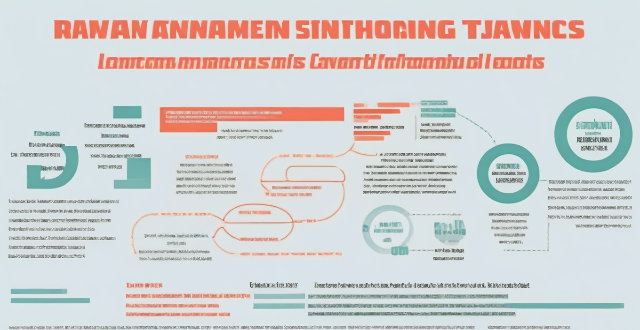
What are the legal aspects to consider in credit management ?
Credit management involves various legal considerations, including contract law, consumer protection laws, privacy laws, bankruptcy laws, state and federal laws, and collections practices. Businesses must ensure that their contracts are legally binding, disclose all relevant information about their credit products, protect customer data, understand bankruptcy laws, comply with usury laws and licensing requirements, and adhere to the Fair Debt Collection Practices Act. By considering these legal factors, businesses can maintain strong relationships with their customers while minimizing financial risks.
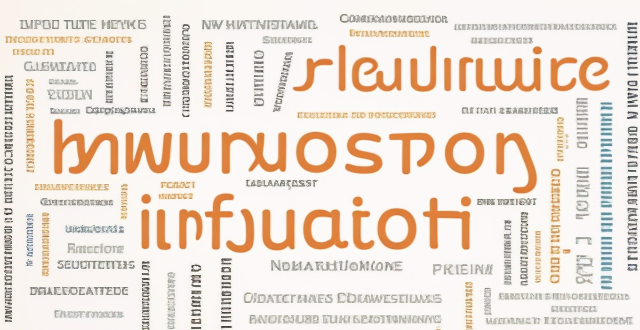
How does credit history influence insurance rates ?
The text discusses how credit history influences insurance rates. Insurers use credit history as a predictor of future claims and risk, with studies showing that individuals with poor credit histories are more likely to file claims and cost insurers more money than those with good credit histories. Several factors can affect insurance rates based on credit history, including payment history, amount owed, length of credit history, and types of credit used. Maintaining a strong credit history can potentially save money on insurance premiums and demonstrate financial responsibility to insurers.

How can small businesses improve their credit management ?
Credit management is an essential aspect of running a successful business. It involves managing the company's debt, ensuring timely payments to vendors and suppliers, and maintaining a good credit score. Here are some tips on how small businesses can improve their credit management: 1. Set up a system for tracking invoices and payments. 2. Negotiate better terms with vendors and suppliers. 3. Pay bills on time. 4. Monitor your credit score regularly. 5. Keep personal and business finances separate. 6. Seek professional advice when needed.

What is credit management ?
Credit management is the process of managing and controlling the use of credit by individuals or businesses. It involves evaluating borrowers' creditworthiness, determining the amount of credit to extend, monitoring loan repayment, and taking action for late payments. Key components include credit analysis, evaluation, loan monitoring, collections management, risk management, and customer relationship management. Effective credit management benefits include reduced default risk, improved cash flow, increased customer satisfaction, and enhanced reputation.

How does credit management work in a bank ?
Credit management is a crucial function of banks that involves assessing and managing the risks associated with lending money to individuals and businesses. The process includes evaluating borrowers' creditworthiness, using credit scoring models to determine risk, making loan decisions, servicing and monitoring loans, and managing credit risk through diversification and risk management strategies.

Can you explain the process of credit analysis in credit management ?
Credit analysis is a crucial process in credit management that involves evaluating the creditworthiness of a borrower or a counterparty. The process includes gathering information on personal data, financial data, and credit history, analyzing this information through credit score analysis, financial statement analysis, and industry analysis, and determining creditworthiness based on capacity to repay, collateral, and covenant analysis. Finally, a decision is made on whether to extend credit to the borrower or not.
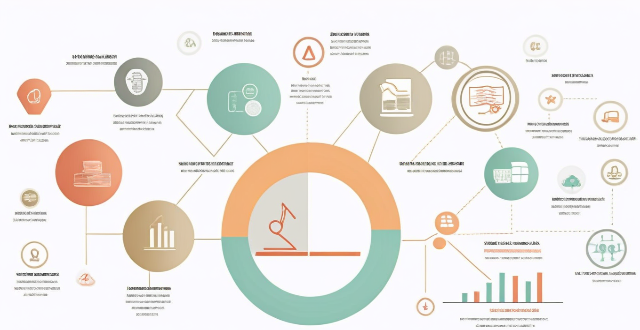
What is the role of credit rating agencies in bond investing ?
Credit rating agencies are pivotal in bond investing, offering independent assessments of issuers' creditworthiness. They conduct thorough analyses and assign ratings reflecting the likelihood of default, aiding investors in risk evaluation and portfolio diversification. These ratings contribute to market transparency, efficient price discovery, and enhanced liquidity. They also play a role in regulatory compliance for institutional investors and capital markets regulation. However, concerns about conflicts of interest and rating accuracy during crises highlight the need for improved methodologies and increased accountability.
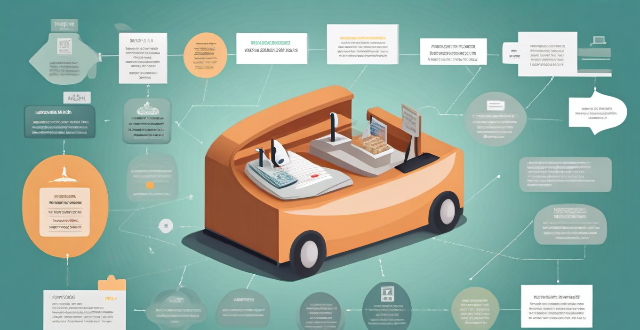
What is credit monitoring and why is it important in credit management ?
Credit monitoring is the process of tracking and analyzing a borrower's credit history, including payment behavior, outstanding debts, and changes in credit scores. It is important for early warning signals of potential default or delinquency, accurate risk assessment, fraud prevention, customer relationship management, and compliance with regulations. By continuously monitoring a borrower's credit history, lenders can update their risk assessments, prevent fraud, tailor their products and services to better meet their customers' requirements, and ensure they are meeting regulatory requirements.

What is climate debt ?
Climate debt is a concept that suggests wealthy nations owe a moral and ecological debt to poorer countries due to their disproportionate contribution to global warming. The idea is based on the principle of "common but differentiated responsibilities," which recognizes that all countries have a responsibility to address climate change, but the extent of this responsibility should be based on historical contributions and capacity to take action. Key points include historical responsibility, capacity to mitigate, and vulnerability and adaptation. Wealthy nations have been industrializing for longer and have more resources to invest in renewable energy, while poorer countries often lack the financial and institutional capacity to adapt to the impacts of climate change. Addressing climate debt is seen as an essential component of any equitable and effective response to the urgent challenge of climate change.

How does climate debt affect developing countries ?
The concept of climate debt acknowledges the unequal impact of climate change on developing countries, which have contributed less to the problem but suffer more from its effects. This includes economic losses, social challenges such as health concerns and food insecurity, environmental threats like biodiversity loss and water scarcity, and political and legal issues including migration and international agreements. To address these challenges, initiatives like financial transfers, technology sharing, capacity building, debt forgiveness, and just transition policies are being implemented. Recognizing and supporting the needs of developing nations is crucial for achieving a more equitable and sustainable global future.

How do I maximize my credit card rewards ?
Maximizing Credit Card Rewards: Tips for Earning More Credit card rewards can be a valuable way to save money and earn cash back, travel points, or other perks. To maximize your rewards, it's important to choose the right credit card, use it regularly, take advantage of bonus categories, and track your rewards. You should also combine rewards with other discounts, consider a card with an annual fee, avoid unnecessary fees, monitor your credit score, and don't overspend. By following these tips, you can make the most of your credit card rewards while using them responsibly.

How do banks manage credit risk ?
Banks manage credit risk through a variety of methods and strategies to ensure the stability of their operations and protect against potential losses. They identify and assess credit risk using credit scoring models, financial analysis, and credit reports. They mitigate credit risk through diversification, collateral and guarantees, and credit derivatives. Banks monitor and control credit risk by ongoing monitoring, loan loss reserves, and regulatory compliance. In case of credit risk events, banks recover through workout agreements, legal recourse, and communication with stakeholders. By employing these strategies, banks aim to minimize credit risk while still providing essential lending services to support economic growth and individual prosperity.

What are the consequences of not addressing climate debt ?
Addressing climate debt is crucial to mitigate environmental degradation, social injustices, and economic instability. Failure to do so exacerbates global warming effects like loss of biodiversity, sea level rise, and extreme weather events. It also leads to inequality, health issues, food insecurity, economic downturn, investment risks, and job losses. Recognizing and addressing climate debt is essential for achieving global sustainability goals and ensuring peace and justice worldwide.

What role do individuals play in addressing climate debt ?
The text discusses the concept of climate debt and the role individuals can play in addressing it. The author outlines six key areas where individuals can make a difference, including understanding the concept of climate debt, reducing personal carbon footprint, supporting sustainable practices, advocating for change, embracing a sustainable lifestyle, and educating future generations about the importance of environmental stewardship. Each section provides specific actions that individuals can take to contribute to reducing climate debt and mitigating the effects of climate change.

What role does credit scoring play in credit management ?
This article discusses the importance of credit scoring in credit management. It explains what credit scoring is, its role in risk assessment, fairness and objectivity, efficiency and accuracy, customization, and compliance with regulations. The article emphasizes that credit scoring is a crucial tool for lenders to evaluate borrowers' creditworthiness and make informed decisions about approving loans.

Can I get a mortgage with bad credit ?
Getting a mortgage with bad credit is possible but may be more challenging and come with less favorable loan terms. To increase your chances, check your credit score, work on improving it, shop around for lenders, consider alternative options like FHA or VA loans, and be prepared to make a larger down payment.

How does defaulting on a student loan affect future borrowing ?
Defaulting on a student loan can severely impact your financial future, including your ability to borrow money. Here's what happens when you default and how it affects future borrowing: 1. **Consequences of Defaulting**: When you fail to make payments on your student loan for an extended period (typically 270 days), it's declared in default. The loan servicer then takes measures like wage garnishment, tax refund offset, and charging collection fees. Your credit score also takes a significant hit. 2. **Impact on Future Borrowing**: - **Difficulty Obtaining New Loans**: Lenders see you as a high-risk borrower, making it hard to get mortgages, car loans, or personal loans. - **Higher Interest Rates**: Even if approved, you face higher interest rates due to your damaged credit score. - **Limited Borrowing Options**: You may only qualify for secured or co-signed loans. - **Trouble Renting Property**: Some landlords check credit scores, and a defaulted loan can hinder your rental applications. - **Impact on Employment Opportunities**: While less common, some employers might check your credit report, affecting job prospects in industries where financial responsibility is crucial. 3. **Recovering from Default**: - **Rehabilitation Programs**: Many lenders offer these to help you make affordable payments over time, removing the default status. - **Consolidation Loans**: You can consolidate your defaulted loan into a new Direct Consolidation Loan through the federal government, making it easier to manage your debt. However, this doesn't remove the default status from your credit report. - **Paying Off the Debt**: If possible, paying off the loan in full removes the default status and improves your borrowing prospects. Negotiating a settlement with your lender or seeking assistance from a nonprofit credit counseling agency are other options.

How can companies use credit management to improve cash flow ?
Credit management is crucial for companies extending credit to customers. Strategies include implementing a credit policy, conducting credit checks, monitoring receivables, offering multiple payment options, incentivizing timely payments, using automated tools, and periodically reviewing and adjusting processes. These steps can help reduce bad debts and improve cash flow.
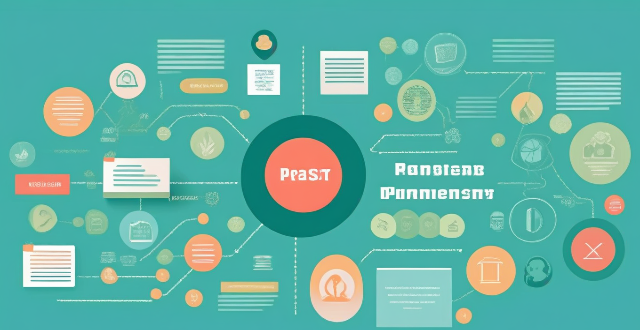
How do you handle late payments in credit management ?
Late payments are a common issue in credit management. Handling them requires effective communication, flexibility, and sometimes tough decisions. The first step is to communicate with the customer and offer flexible payment options if needed. If these methods fail, collections agencies or legal action may be necessary. However, it's important to maintain a positive relationship with the customer throughout the process.

How often do credit card rewards expire ?
This text provides an in-depth analysis of credit card rewards expiry. It explains the various types of rewards and their typical expiration timelines, including cashback rewards, travel points, and other benefits. The article also offers tips on how to maximize the value of these rewards before they expire, such as staying organized, planning ahead, redeeming early, exploring redemption options, and negotiating with your credit card issuer if necessary. Overall, it emphasizes the importance of understanding the terms and conditions of credit card rewards to make the most of them.

How do I qualify for a mortgage loan ?
This article provides a detailed guide on how to qualify for a mortgage loan, highlighting key factors that lenders consider such as income, credit score, debt-to-income ratio, employment history, and assets and liabilities. It also outlines steps to take in order to increase chances of success including checking your credit score, calculating your DTI, gathering financial documents, shopping around for lenders, getting pre-approved for a loan, finding a home within budget range, making an offer, and completing the closing process.

What are some proven strategies for long-term wealth accumulation ?
Long-term wealth accumulation is a goal for many individuals, and there are several proven strategies that can help achieve this objective. Here are some of the most effective approaches: 1\. Start Early: The earlier you start saving and investing, the more time your money has to grow through compound interest. 2\. Live Below Your Means: Spend less than you earn and save the difference. 3\. Invest Wisely: Choose investments that align with your goals, risk tolerance, and time horizon. Diversify your portfolio to spread risk and maximize returns. 4\. Pay Off High-Interest Debt: High-interest debt like credit card balances can be a significant obstacle to wealth accumulation. Paying off these debts should be a priority. 5\. Increase Your Income: Increasing your income can provide more resources for saving and investing, which can help accelerate wealth accumulation. 6\. Plan for Retirement: Retirement planning is an essential component of long-term wealth accumulation, ensuring you have enough funds to support yourself during your golden years. 7\. Protect Your Wealth: Ensure that your hard-earned wealth is protected against unexpected events like lawsuits, accidents, or health issues.